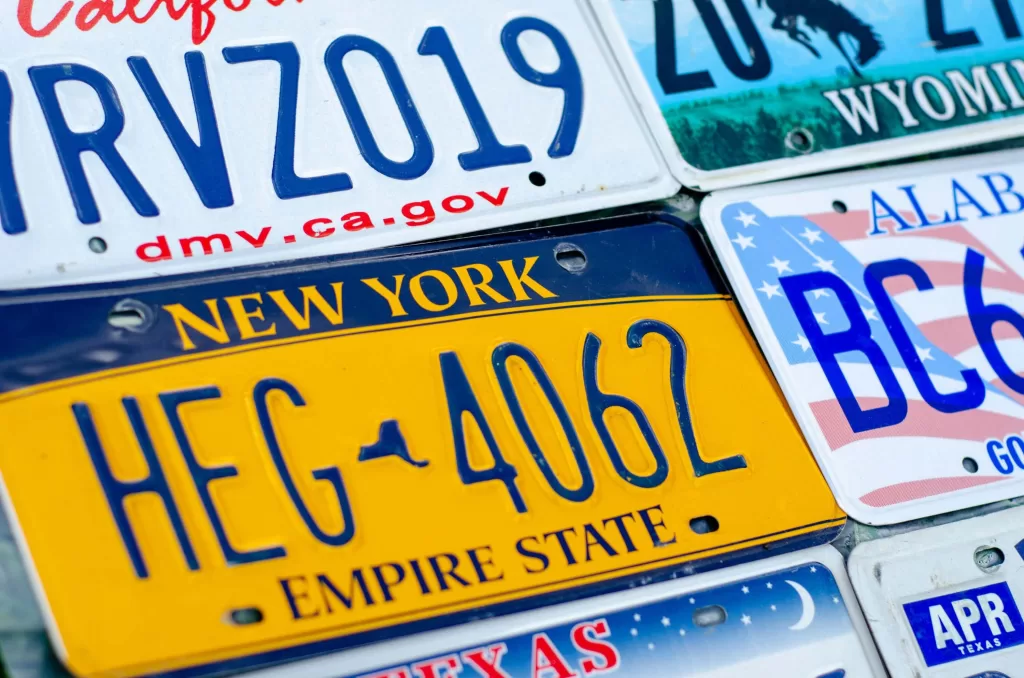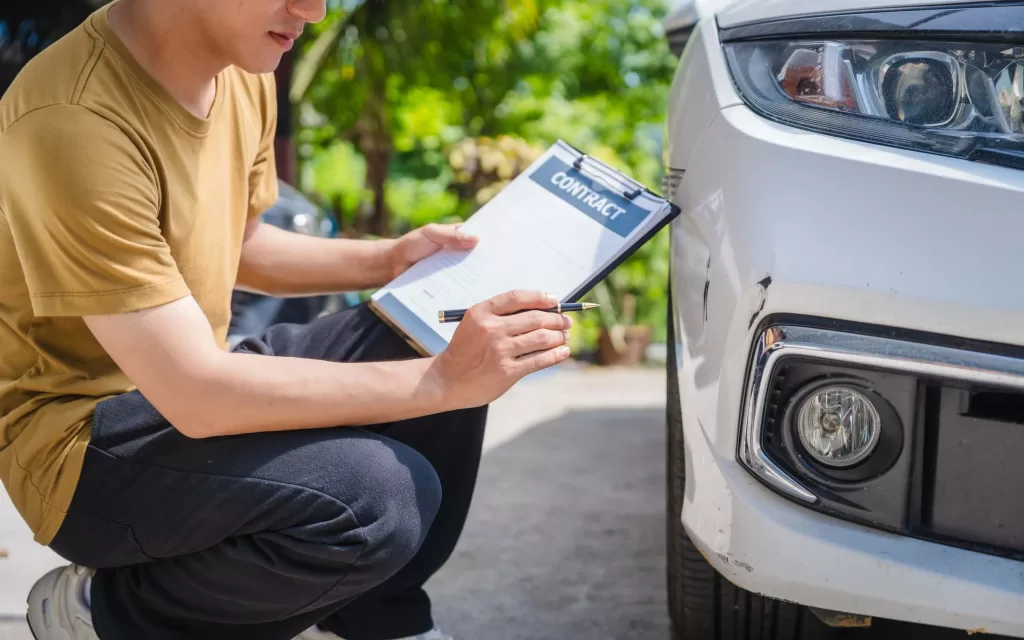If you have just moved to New York and you have your own vehicle, you should make sure to get your car insurance squared away with the insurance company. You will need to update your insurance coverage as out-of-state car insurance rules differ from those in New York.

Car insurance with a different state registration is ill-advised since your car insurance policy may not cover you in the event of car accidents or Uber accidents. When you do not get New York state insurance coverage, it is considered a form of insurance fraud, which can result in criminal charges.
If your car registration is not in the same state as your vehicle insurance or driver’s license, it is important to get it up to date. Mazzu Law is a personal injury law firm committed to helping injured victims get justice and compensation for their injuries. In this blog post, we address the question, “Can you have car insurance in a different state than your registration?” to keep you informed and in compliance with New York state law.
Auto Insurance Requirements Across Different States
When it comes to car insurance, you do not need to worry if you drive into another state temporarily, such as for a vacation or even a brief work trip. However, the situation gets more complicated if you spend a lot of time in a different state.
Your driver’s license, car insurance policy, and vehicle registration should all be for the same state that you live in for most of the year. If you have recently relocated to New York, you should speak with an insurance agent from your insurance company to update your insurance coverage. Generally, most car insurance companies will allow you between 30 and 90 days to make these changes.
Additionally, New York State insurance requirements mandate that you must have New York State insurance coverage issued by a company licensed by the New York State Department of Financial Services and certified by the New York State DMV. Out-of-state insurance is not accepted.
Conversely, if you move from New York to a new state, you should contact your insurance provider as soon as possible to prevent issues with your registration and insurance policy, particularly when it comes to liability coverage. This will ensure that you are covered in the event of an accident.
The Legal Implications of Having Car Insurance in a Different State Than Your Vehicle Registration
Can you have car insurance in a different state than your registration? No, you cannot. If you have auto insurance in one state but not in a new state, then it is illegal to not have insurance in the same state as the one in which your car is registered. You must have your vehicle registered and insured for the state of your permanent residence or you may face legal consequences.
Insurance Fraud
If vehicle registrations for motor vehicles are not registered and insured for the same state, it is a matter of fraud. Your insurance company can cancel your insurance policy, and if you have any pending insurance claims, they can deny them. Additionally, fraud is a criminal act that could be punishable by fines and jail time.

Driving Without an Insurance Policy
When an insurance company suspects fraud, the insurance provider will cancel the policy, making the insurance card null and void. Driving without insurance can also result in punishments, including driver’s license suspension, jail time, and fines.
Exceptions That Are Permitted with Auto Insurance in a Different State from Vehicle Registration
Cross-state car insurance policies when you move from one state to a new state are only available in certain scenarios. Here is a look at when your insurance company will likely make an exception for when your vehicle registration and insurance policy are not in the same state.
Multiple State Residency
Sometimes known as the “snowbird exemption,” you may be able to have insurance in your home state and any other states in which you reside. It will vary depending on state regulations, though for many New Yorkers, escaping to warming climates in the winter is a common practice.
Most states will require that you have your registration and insurance in the one state but there may be requirements from the DMV in your home state. If you have multiple motor vehicles and one is in one state while the other is in a different state, you may need to have the vehicle registration and insurance for each in separate states. You should contact your local DMV and your insurance agent to make sure your vehicles are properly covered in accordance with the laws in the state.
Temporary Relocation
If you are staying in a different state from your primary residence but only for a short term for work or other reasons, you may not need to update your insurance policy. While you will not need to change your car registration to a temporary status, you may want to buy insurance for an additional policy to have sufficient coverage while you are away.
College Students
If you attend school in a different state, you will likely need to register and insure your vehicle for the state in which you are attending college. If a family member obtained your car registration, you will need to have them get it registered and insured for the state in which you will attend college, or have them transfer ownership.
College students who have a car registered in New York but are leaving it behind during the semester can reduce their insurance costs. Ask about applying for an “away at school” discount to your insurance premiums for a more affordable insurance policy.
Military Members
Active members of the military also get exemptions with insurers. If you are a member of the military, you must keep your insurance policy and register your vehicle and your driver’s license in your home state. Even if you live elsewhere, this should apply as the general rule unless there has been a permanent change of station (PCS). It is always best to check with insurers as well as your military branch to ensure proper protocol.

Steps to Take for Legal Compliance with State Laws for Car Insurance
Making sure your vehicle is properly registered and that you at least have the minimum coverage requirements for insurance is essential. If you were to get into a car accident, your coverage may be voided and you would; be stuck paying for all your expenses out of your pocket. This can be especially upsetting if another person caused the accident.
Before you ever need to make an insurance claim, make sure your insured vehicle meets the requirements set by the laws in the state. To avoid issues in the claims process for bodily injury or property damage, follow these steps:
Check the Requirements
Most people can agree that moving to another state is a huge pain, especially when it comes to insurers and coverage. Before you make your move, you can avoid many hassles by checking with your insurance and the DMV about registering your vehicle.
Update Your Vehicle Policy Before Time Runs Out
Each insurance company will have its requirements for when you need to update the policy coverage after you move, even if you do not change states. However, when you change states, you must not delay as it can land you in legal trouble with fraud charges.
Generally, insurers will allow 30 to 90 days. You can stay ahead of this by contacting your insurer as soon as you know you will be moving. You do not want to risk getting into a car accident after your move and discover that you are not covered. Both the Driver License Compact (DLC) and the Nonresident Violator Compact (NVC) will see to it that your home state is alerted of this violation. You may have your license suspended until you take care of this issue, and with a ticket on your driving record, you can expect your coverage to become more expensive.
Learn If You Need to Insure in Each State You Reside
If you insure your car in a state t where it is not primarily driven or where your main residence is located, it may be considered fraud. You may need to live and drive in two separate states and this would require you to have a discussion with an insurance editor who can help you apply these changes.
Change Your Insurance
Remember, in New York, you have to use a provider that offers coverage in the state. You may have an insurer who provides nationwide coverage, which would allow you to stay with them. However, even if you do not need to change companies, you will need to consider the changes to your premium. It may become too expensive for you to stick with the same company.
Since you may need to shop around, it is always a wise move to start this process before you move. You will not be in a crunch to get the coverage you need and you can have full peace of mind that you are covered should an accident occur.
What to Do If You Get into a Car Accident with a Vehicle Registered Elsewhere
Most states require proof of vehicle insurance and registration, and you may be worried about that after a car accident. As the vehicle registrant, you will need to provide proof of your coverage to responding officers. Even if you did not cause the accident, it is required.

Call 911
Your first step should be to call 911 to report the crash and remain at the scene. When officers arrive, they will assess the situation. If you or the other driver are in violation of the requirements, you may receive a citation, hence why you are urged to make sure you are covered when you move.
Get Medical Care
Since your health and well-being are of utmost importance, it is vital that you seek immediate medical care after a crash. You may feel fine, though the adrenaline surge you experience after this accident may inhibit the symptoms of your injuries. Call a family member if necessary and go to the emergency room or nearest urgent care center to get the care you need.
Gather Evidence
If you are capable of taking photos and videos of the accident aftermath, use your phone to capture these images. Witnesses may also be able to record statements and tell you what they saw.
Contact a Car Accident Attorney
Ideally, you have insured your car in accordance with state rules. If there are any issues with the insurance of your vehicle or the driver of the other car has caused you serious injuries, you should not hesitate to speak with a personal injury lawyer.
New York is a no-fault state, which requires drivers to go through their own insurer regardless of who was at fault for the accident. If you do not have a policy, you may be stuck in a difficult situation. However, when another driver behaves negligently and causes you severe injuries that may have permanent impacts on your life, personal injury law allows you legal recourse to recover compensation for your financial losses.
It can be incredibly complex to do this in many states, including New York. You should not proceed without having a lawyer guide you through this intricate process.
Additionally, since New York follows a pure comparative negligence model, you may be partially blamed for your injuries. If there are issues with your insurance, this may further complicate things, leading to a lowball settlement offer from the other party’s insurer. In some cases, they may even try to deny your claim on baseless grounds. Protect yourself by contacting Mazzu Law and scheduling a free consultation.